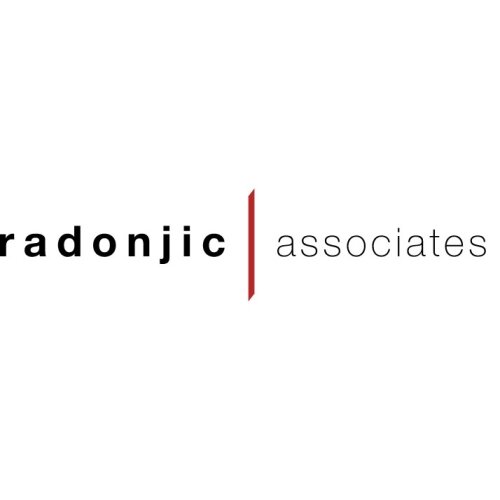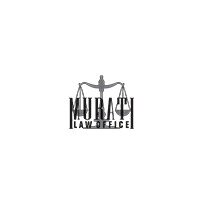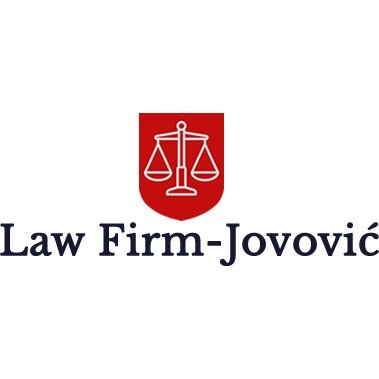Best Tax Lawyers in Montenegro
Share your needs with us, get contacted by law firms.
Free. Takes 2 min.
Or refine your search by selecting a city:
List of the best lawyers in Montenegro
About Tax Law in Montenegro
Tax law in Montenegro involves the administration and enforcement of the tax policies governed by Montenegrin authorities. The country's tax system is structured to support its economic framework and includes various taxes such as income tax, corporate tax, value-added tax (VAT), property tax, and other local taxes. Montenegro has implemented a flat tax rate system, with individuals and corporations typically subject to a flat income tax rate. Understanding these tax laws is crucial for compliance and efficient financial planning.
Why You May Need a Lawyer
There are several scenarios in which legal assistance may be required in the area of tax law in Montenegro, including:
- Tax Planning: Individuals and businesses seeking to optimize their tax liability and ensure compliance with Montenegrin tax law might need expert legal advice.
- Tax Disputes: If you're facing disputes with the tax authorities over assessments, liability, or payments, a lawyer can help resolve these issues effectively.
- International Transactions: For those conducting cross-border transactions, understanding the implications of Montenegro's tax treaties is essential, often requiring specialist advice.
- Corporate Restructuring: Businesses undergoing mergers, acquisitions, or restructuring need to navigate complex tax regulations, and legal counsel ensures compliance and optimal outcomes.
- Compliance Issues: For businesses and individuals struggling with compliance, legal guidance is crucial to avoiding penalties and sanctions.
Local Laws Overview
Here are some key aspects of local tax laws in Montenegro:
- Income Tax: Montenegro employs a flat rate for personal income tax at 9%, but certain exceptions and different rates may apply depending on income levels and circumstances.
- Corporate Tax: The corporate tax rate is also flat at 9%, making it attractive for businesses operating or planning to invest in the region.
- Value Added Tax (VAT): The standard VAT rate is 21%, with reduced rates at 7% applicable to certain goods and services.
- Property Tax: Local municipalities levy property taxes, which vary based on property value, location, and size.
- Tax Treaties: Montenegro has signed double taxation treaties with numerous countries, which affects international taxation and residency considerations.
Frequently Asked Questions
What is the tax year in Montenegro?
The tax year in Montenegro runs from January 1 to December 31.
Are there any tax incentives for foreign investors?
Yes, Montenegro offers several tax incentives to attract foreign investment, including reduced tax rates and exemptions under specific conditions.
How is personal income tax calculated?
Personal income tax in Montenegro is typically calculated with a flat rate of 9% on taxable income, though different rates or allowances may apply to certain categories of income.
What are the VAT registration requirements?
Businesses with an annual turnover exceeding €18,000 must register for VAT. Voluntary registration is also an option for businesses with lower turnovers.
Is there a tax on dividends?
Yes, dividends received by resident individuals are typically subject to a withholding tax of 9%.
What are the penalties for late tax payments?
Late payment of taxes can incur interest and penalties. It is advisable to pay any taxes owed by the due date to avoid additional charges.
How can double taxation be avoided?
Montenegro’s tax treaties with other countries typically include provisions to avoid double taxation, primarily through tax credits or exemptions.
What is the corporate tax rate?
The corporate tax rate in Montenegro is a flat 9% on the company’s taxable profits.
Are non-residents taxed differently?
Non-residents are taxed only on income arising within Montenegro, whereas residents are taxed on worldwide income.
What records must businesses maintain for tax purposes?
Businesses are required to maintain comprehensive accounting records that clearly document all transactions, enabling verification of tax compliance and obligations.
Additional Resources
For further assistance, consider reaching out to the following resources in Montenegro:
- Montenegrin Tax Administration: The official body for tax matters can provide guidance and resources for taxpayers.
- Local Chambers of Commerce: These organizations can offer support and information, particularly for businesses.
- Professional Advisory Firms: Many firms specialize in tax advisory services and legal aid, offering tailored advice.
Next Steps
If you require legal assistance relating to tax issues in Montenegro, your next steps should include:
- Consulting with a qualified tax lawyer or legal expert specializing in Montenegrin tax law.
- Gathering all relevant documents and information before your consultation to facilitate a thorough analysis of your situation.
- Considering any immediate deadlines or obligations you may need to manage, such as tax filings or payment dates.
Navigating tax law can be complex, but with the right legal support, you can ensure compliance and optimize your financial strategy within Montenegro's legal framework.
Lawzana helps you find the best lawyers and law firms in Montenegro through a curated and pre-screened list of qualified legal professionals. Our platform offers rankings and detailed profiles of attorneys and law firms, allowing you to compare based on practice areas, including Tax, experience, and client feedback.
Each profile includes a description of the firm's areas of practice, client reviews, team members and partners, year of establishment, spoken languages, office locations, contact information, social media presence, and any published articles or resources. Most firms on our platform speak English and are experienced in both local and international legal matters.
Get a quote from top-rated law firms in Montenegro — quickly, securely, and without unnecessary hassle.
Disclaimer:
The information provided on this page is for general informational purposes only and does not constitute legal advice. While we strive to ensure the accuracy and relevance of the content, legal information may change over time, and interpretations of the law can vary. You should always consult with a qualified legal professional for advice specific to your situation.
We disclaim all liability for actions taken or not taken based on the content of this page. If you believe any information is incorrect or outdated, please contact us, and we will review and update it where appropriate.
Browse tax law firms by city in Montenegro
Refine your search by selecting a city.
















